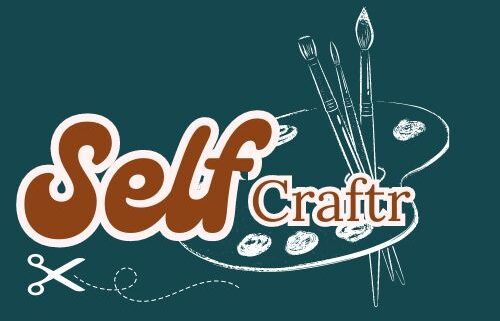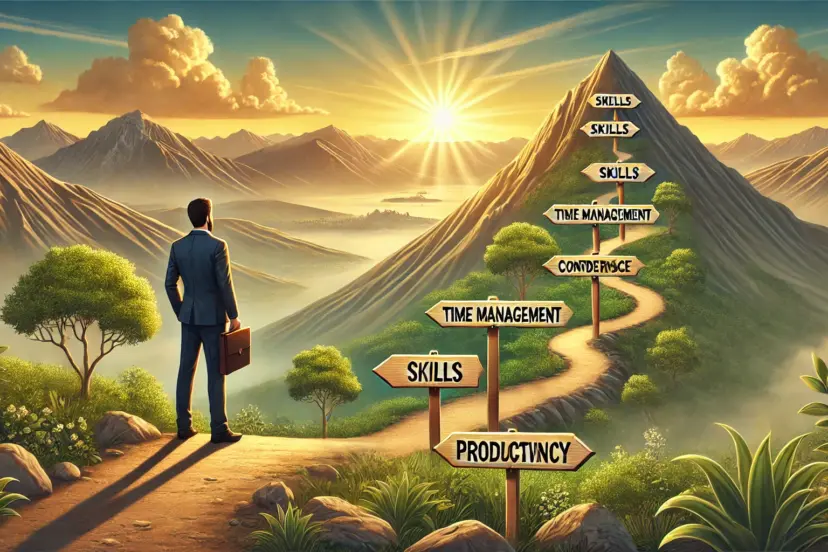Personal Development Objectives for Work
We may earn a commission for purchases made using our links. Please see our disclosure to learn more.
Personal growth goals are similar to a secret code for professional success. Have you ever had the feeling that you’re just circling around in circles and never moving forward? This is where establishing specific, doable goals might help. Like setting your GPS for progress, it will help you avoid pointless detours and get to where you really want to go. This post will explain why personal growth is important, how to create goals that are truly achievable, and offer helpful advice for developing both professionally and personally. Are you prepared to change the way you work? Let’s begin.
What Are Personal Development Objectives?
The goals you create for yourself to advance professionally are known as personal development objectives. Investing in your abilities, skills, and mindset will help you perform better and stand out at work. These goals are all about you—your development, your aspirations, and your future—unlike the chores your boss assigns you.
Why Are Personal Development Objectives Important?
Imagine having no idea where you’re going while you drive. In addition to wasting time and petrol, you would most likely become frustrated. Setting goals for your personal development helps you prioritize your progress and gives you a clear purpose. They keep you going, increasing your confidence and productivity while providing access to new and interesting prospects. You’re simply winging it without them, and nobody like being stranded.
The Link Between Personal Development and Work Success
Your personal growth directly fuels your professional success. When you improve a skill or embrace a new challenge, you become more valuable in the workplace. Whether it’s learning to lead a team or mastering time management, every improvement makes you better equipped to tackle bigger opportunities. It’s a win-win: you grow as a person, and your work performance shines.
How to Set Effective Personal Development Objectives
Make sure your goals are specific and attainable because vague ones won’t get you very far. Using the SMART method—which stands for Specific, Measurable, Achievable, Relevant, and Time-bound—is a terrific way to accomplish this. See the difference? Say, “I’ll improve my presentation skills by completing a public speaking course within 3 months,” as opposed to, “I want to get better at presentations.” You have a clear path to follow when you have specific goals.
Improve Time Management
We all wish for more hours in the day, don’t we? The truth is, time isn’t the problem—it’s how you manage it. Start focusing on prioritizing what really matters, cutting out distractions, and using calendars or productivity apps to stay on track. Mastering time management can make you feel like you’ve added an extra hour to your day.
Enhance Communication Skills
Communication is everything. Whether you’re writing emails, presenting ideas, or chatting with your boss, clear communication makes you stand out. If you struggle to express yourself, practice being concise, articulate, and confident in what you say. Communication is like a muscle—the more you use it, the stronger it gets.
Develop Leadership Qualities
Leadership isn’t just about being in charge. It’s about inspiring others, making confident decisions, and stepping up when the team needs you. Even if you’re not a manager, you can develop leadership skills by taking initiative and guiding projects. Leaders aren’t born—they’re built, one step at a time.
Build Confidence in the Workplace
Confidence doesn’t mean you know everything; it’s about trusting yourself enough to take action. Start by stepping out of your comfort zone—speak up in meetings, take on challenges, and remind yourself of what you’re good at. Confidence grows when you face fears head-on and realize, “Hey, I can do this.”

Master New Technical Skills
Technology evolves faster than we can blink, and staying relevant means keeping up. Whether it’s learning a new software, coding, or mastering a digital tool, technical skills keep you sharp. Take the initiative to upskill—it’s like giving yourself an edge in a competitive job market.
Cultivate Emotional Intelligence
At work, emotional intelligence is just as important as technical skills. It’s about understanding your own emotions and reading those of others. Learn to handle stress, stay calm under pressure, and show empathy toward colleagues. When you master your emotions, you can navigate tricky work situations like a pro.
Develop a Growth Mindset
Ever notice how some people bounce back from failure while others get stuck? That’s the power of a growth mindset. Instead of seeing challenges as roadblocks, view them as opportunities to learn. With this mindset, you’ll tackle problems, take risks, and grow through every experience—good or bad.
Strengthen Problem-Solving Abilities
Problems are part of any job, but how you handle them sets you apart. Instead of panicking when things go wrong, focus on finding solutions. Improve your critical thinking, ask “what if?” questions, and brainstorm creative ways to tackle issues. Being a problem-solver makes you indispensable.
Boost Productivity
Ever feel like you’re busy all day but get nothing done? It’s frustrating, isn’t it? Boosting productivity starts with working smarter, not harder. Find methods like the Pomodoro technique, tackle the most important tasks first, and avoid multitasking. When you get into a rhythm, you’ll accomplish more without feeling overwhelmed.
Learn to Manage Stress
Work stress is inevitable, but it doesn’t have to take over your life. Find ways to manage it—whether it’s through mindfulness, deep breathing, or simply taking regular breaks. Stress management is like exercising—it requires consistency, but the results are worth it. A clear, calm mind helps you perform at your best.
Improve Networking Skills
Your network can open doors that your resume can’t. Make an effort to build genuine relationships with colleagues, attend industry events, and connect with professionals online. Networking isn’t about collecting contacts—it’s about building meaningful connections that can help you grow.
Sharpen Decision-Making Skills
Decisions are everywhere in the workplace, from small choices to big, impactful ones. Strengthening your decision-making skills involves trusting your gut, analyzing pros and cons, and acting confidently. The more decisions you make, the more you’ll learn to trust yourself.
Develop Better Work-Life Balance
All work and no play leads straight to burnout. Setting boundaries between your personal and professional life is crucial. Prioritize time for hobbies, family, and self-care. A healthy work-life balance isn’t selfish—it’s the fuel that keeps you performing well at work.
Improve Public Speaking Skills
Does speaking in front of a crowd make your palms sweat? You’re not alone. Public speaking is a skill that takes practice, but it can change how others see you. Start small by practicing presentations with friends or joining a public speaking group. The more you do it, the more natural it feels.
Gain Industry-Specific Certifications
Certifications are like proof that you’re serious about your field. Whether it’s through short courses, workshops, or online programs, earning certifications can boost your expertise and set you apart. It’s a small step that adds major value to your professional profile.
Learn to Accept and Implement Feedback
Feedback can sting, but it’s one of the fastest ways to grow. Instead of taking it personally, view it as free advice to improve yourself. Actively seek feedback, listen without defensiveness, and apply what you learn. The more open you are to feedback, the quicker you’ll level up.
How to Track Your Progress
It’s easy to lose track of goals if you don’t measure progress. Keep a journal, use a tracking app, or revisit your goals monthly to see how far you’ve come. Celebrate small wins—they’re proof that you’re moving forward. When you acknowledge progress, you’ll feel more motivated to keep going.
Overcoming Common Challenges
We all hit roadblocks. Maybe you lose motivation, get too busy, or feel like giving up. That’s normal. The key is to break goals into smaller steps, stay consistent, and remind yourself why you set the goal in the first place. Think of setbacks as detours, not dead ends.
The Role of Personal Development in Career Advancement
If you want that promotion, raise, or dream job, personal development is your ticket there. Employers love team members who actively improve themselves because growth shows initiative. By investing in your own development, you position yourself as someone who’s not just good at their job but great.
The Power of Goal-Setting for Personal Development
When it comes to achieving personal development objectives, research consistently emphasizes the importance of effective goal-setting. According to the Goal-Setting Theory by Locke and Latham, setting clear, specific, and challenging goals significantly boosts motivation and performance compared to vague or easy targets. This theory highlights that goals act as a driving force, helping individuals focus their efforts and measure progress effectively. Similarly, the SMART goals framework, as discussed by the National Institutes of Health (NIH), provides a practical way to create actionable and attainable objectives. By ensuring goals are Specific, Measurable, Achievable, Relevant, and Time-bound, individuals can enhance their productivity, stay on track, and experience meaningful growth in their careers.
Enhance Your Personal Development with These Amazon Finds
Embarking on a journey of personal growth is both exciting and rewarding. Equipping yourself with the right tools can make this journey smoother and more effective. Here are some top-rated products available on Amazon to support your personal development:
1. metaFox Habit Tracker Calendar
This undated planner and habit tracker is designed to help you build and maintain positive habits. With a spiral binding and 12-month layout, it allows you to set goals, track progress, and stay organized throughout the year. Its user-friendly design makes it a valuable companion for anyone aiming to enhance their daily routines.
2. Clever Fox Self-Care Journal
This daily reflection notebook focuses on mental health and personal development. It includes sections for meditation, mood tracking, and self-reflection, encouraging mindfulness and self-awareness. Its compact A5 size makes it convenient to carry, allowing you to engage in self-care practices wherever you go.
3. Legend Planner PRO Hourly Schedule
Designed to boost productivity, this undated planner features hourly time slots, helping you manage your time effectively. It includes monthly and weekly layouts, goal-setting sections, and space for daily priorities, enabling you to stay focused and organized. Its durable hardcover and functional design make it a reliable tool for achieving your personal and professional goals.
4. GoGirl Planner PRO Schedule
This undated planner offers hourly time slots, monthly and weekly layouts, and sections for goal setting and time management. Its compact size and functional design make it a practical choice for individuals seeking to enhance their productivity and achieve their objectives.
5. Habit Tracker Calendar with Wood Stand
This daily goal and accountability journal comes with 12 paper sheets for a year, allowing you to develop better habits and track goals related to fitness, well-being, and overall personal development. Its minimalist design and included wood stand make it an aesthetically pleasing addition to your workspace.
Conclusion
Personal development objectives are your game plan for becoming the best version of yourself. They’re not just about learning new skills—they’re about growing in confidence, building resilience, and creating the career you truly want. Start small, track your progress, and keep pushing forward. Growth might take time, but trust me—it’s worth it. The future you is already cheering you on.
FAQs About Personal Development Objectives for Work
What are personal development objectives?
Personal development objectives are goals you set to improve your skills, mindset, and performance at work. They focus on your personal growth.
How do I figure out which objectives to set?
Reflect on your strengths and weaknesses. Seek feedback from colleagues or managers, and think about where you want to see improvement in your role.
Why do personal development objectives matter?
They give you a clear direction for growth, boost productivity, and help you stand out at work. It’s like creating your own roadmap to success.
How do I stick to my personal development goals?
Break them into smaller steps, track your progress regularly, and celebrate every milestone. Remind yourself why you started in the first place.
Can personal development really help my career?
Absolutely! Personal development makes you better at your job, increases confidence, and positions you for promotions and new opportunities.
When you invest in your personal development, you’re not just improving for work—you’re growing for you. So, what are you waiting for? Start today and see how far you can go.




